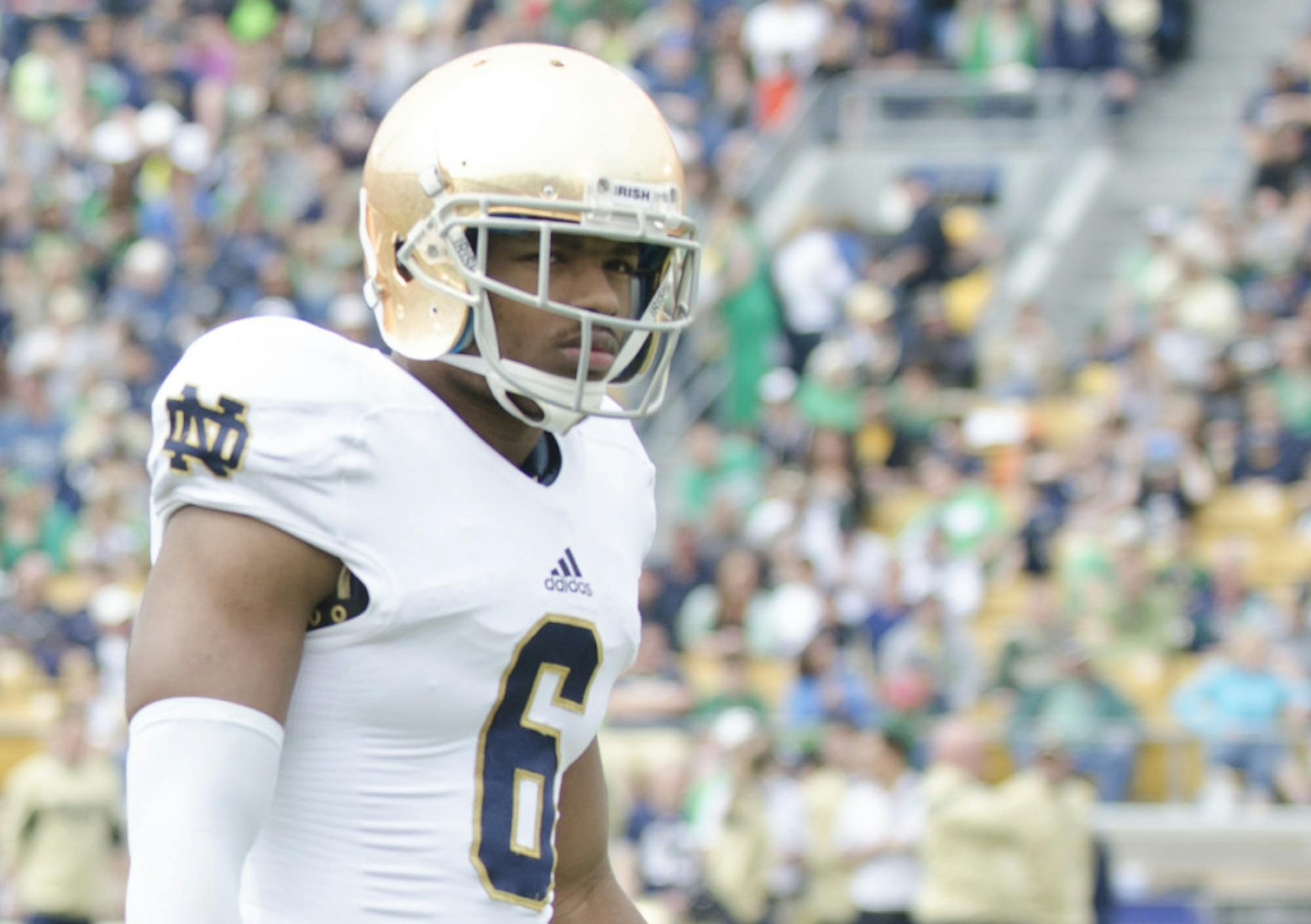In many cases, the Honor Code is at most a peripheral part of many students’ academic experiences at Notre Dame.
Before registering for their freshman year classes, students must pass an online quiz about what does or does not constitute a violation of the Honor Code.
And to upload an assignment to the Sakai online learning platform, many professors require that students check a box stating, “I have neither given nor received aid on this assignment” before the site will accept the submission.
Since Aug. 15, Notre Dame’s Honor Code – and the investigation process for suspected violations – have become the subject of national attention. The University announced five Irish football players would be held out of practice and competition as investigations into possible Honor Code violations played out, and no resolution to their cases has come to light yet.
The time frame for developments remains unclear since players could appeal any decisions, but for now, many students expressed concern about the toll the investigations have taken on the campus community.
"[The academic investigation] wouldn’t have happened this seriously if it were other students who were non-athletes,” freshman Adrianna Duggan said. “If they didn’t treat the athletes the same way as they would treat any other kid who went through the process, obviously that’s not fair.”
Given the high stakes and heavy publicity involved, some students said the process actually should be different for the players.
“It’s been kind of a kangaroo court,” senior Eddie Flood said. “Just the idea that [the players] would go into all these meetings without an attorney, but Notre Dame can call their own shots.
“The speed of the process too has been pretty alarming because these kids lose sleep every night not knowing what’s going to happen to them.”
Freshman Stephanie Reuter said she has only a general understanding of what an Honor Code violation would entail or how the investigation process would unfold.
“My brother went to [the University of Virginia], and a huge thing was the Honor Code. … He talked about it all of the time. It’s not quite talked about as much here,” she said. “Everyone knows about it, but I think it’s more you know about it in principle and not as much in practice and how it operates.
“Once the situation became public, I think it changed the [process].”
Junior Jon Wiese said he has an idea on how the investigation process works, but “not 100 percent.”
“There was definitely an issue in the very beginning when they obviously had trouble keeping things private because everyone knew before the University ever said anything,” he said. “I think that was the biggest problem.”
Several students said the ambiguity made them apprehensive of what it would be like to be involved in an investigation themselves as either witnesses, accusers or accused.
“You know what you are not supposed to do, but you don’t know what happens,” Duggan said. “I just don’t know how this whole situation was handled.”
“It’s nice that [the administration] is respecting their privacy and treating them like every other student,” junior Connor Judson said. “But … it should be innocent until proven guilty, and they have been treated like they are guilty, hence why they have missed five weeks.”
Freshman Meghan Freeman went through the online Honor Code training just a few months ago and said, “Nobody really talks about it, you just sign it."
“There was an Honor Code thing you read, but you don’t really actually talk about the Honor Code,” she said. “We had so many talks when we came in for our orientation, but they never really talked about the Honor Code. I think they just assumed that everything we signed our names to over the summer, automatically you read it and understood it.”
While the students involved were more high-profile than an average case, Freeman said it’s important to remember “they’re still students.”
“I feel like that’s not everyone’s business,” she said. “They’re still students of the University, and they still have some right to privacy.
“Just because they are on the sports team doesn’t mean that if they are in trouble that they should be broadcasted.”













